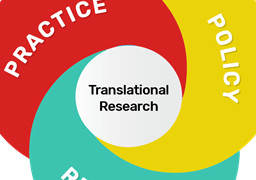




 |
 |
 |
|||
 |
 |
 |
 |
 | |
 |
 |
 | |


| 미디어 브리핑스 | 내서재담기 |


  |
 |  |
전임상(preclinical) 연구의 성공적 결과에 따라 호주 과학자들이 인간을 대상으로 새로운 암 백신 시험을 시작할 준비를 마쳤다. 이 새로운 백신은 호주 퀸즐랜드 대학교(The University of Queensland)와 협력하여 중개연구소(The Translational Research Institute, 중개연구 혹은 병진 연구 - 실험에서 얻은 연구의 성과를 질병의 진단 및 치료를 위해 활용하는 과정) 소속의 연구팀에 의해 개발되었다.
이 백신은 다양한 혈액 암 및 악성 종양을 치료할 수 있는 잠재력을 가지고 있으며, 암 예방접종(vaccinations)에 있어 큰 돌파구를 나타낸다. 연구진은 이 백신이 골수성 백혈병(myeloid leukemia), 비호지킨 림프종(non-Hodgkin’s lymphoma), 다발성 골수종(multiple myeloma), 소아 백혈병(pediatric leukemias)과 같은 혈액 암과 유방암, 폐암, 신장 암, 난소 암, 췌장암 및 교 모세포종(glioblastoma)을 포함한 고형 악성종양을 치료하는 데 사용될 것으로 기대하고 있다.
이 새로운 백신은 종양특이(tumor-specific) 단백질과 융합된 인간 항체로 구성된다. 연구자들은 종양 세포의 메모리(memory)를 활성화하면서 인간 세포를 표적으로 하는 이 백신의 능력을 조사하고 있다.
이 백신은 초기 임상 시험에서 이미 가능성을 보여준 기존 암 백신들에 비해 몇 가지 핵심 이점을 제공한다. 첫째는 환자특이(patient-specific) 백신과 관련된 금전상(financial)/물류상(logistical)의 문제를 피하는 ‘기성품(off the shelf)’ 임상등급 제형으로 생산할 수 있다는 것이다. 둘째는 이 프로토타입 백신은 종양특이 면역 반응의 시작에 필요한 주요 종양 세포를 표적으로 삼아 잠재적인 부작용을 최소화하면서 치료의 잠재적 효과를 극대화한다는 것이다.
References
- Clinical & Translational Immunology, June 12, 2020, “Human CLEC9A Antibodies Deliver Wilms’ Tumor 1 (WT1) Antigen to CD141 Dendritic Cells to Activate Naïve and Memory WT1‐Specific CD8 T Cells,” by Frances E Pearson, et al. © 2020 John Wiley & Sons, Inc. All rights reserved.
To view or purchase this article, please visit:
https://onlinelibrary.wiley.com/doi/full/10.1002/cti2.1141
 |  |
Following the successful outcome of their preclinical studies, Australian scientists are ready to begin trials of a new cancer vaccine in humans. The new vaccine was developed by a team based at The Translational Research Institute working in collaboration with The University of Queensland.
The vaccine has the potential to treat a variety of blood cancers and malignancies and represents a major breakthrough for cancer vaccinations. The researchers are hoping this vaccine will be used to treat blood cancers, such as myeloid leukemia, non-Hodgkin’s lymphoma, multiple myeloma, and pediatric leukemias, plus solid malignancies including breast, lung, renal, ovarian, and pancreatic cancers as well as glioblastoma.
This new vaccine is comprised of human antibodies fused with tumor-specific protein. The researchers are investigating its capacity to target human cells while activating the memory of the tumor cells.”
This vaccine offers several key advantages over existing cancer vaccines, which have already shown promise in early clinical trials. First, it can be produced as an ‘off the shelf’ clinical-grade formulation, which circumvents the financial and logistical issues associated with patient-specific vaccines. Second, this prototype vaccine targets the key tumor cells required for the initiation of tumor-specific immune responses, thereby maximizing the potential effectiveness of treatment, while minimizing potential side-effects.
References
Clinical & Translational Immunology, June 12, 2020, “Human CLEC9A Antibodies Deliver Wilms’ Tumor 1 (WT1) Antigen to CD141 Dendritic Cells to Activate Naïve and Memory WT1‐Specific CD8 T Cells,” by Frances E Pearson, et al. © 2020 John Wiley & Sons, Inc. All rights reserved.
To view or purchase this article, please visit:
https://onlinelibrary.wiley.com/doi/full/10.1002/cti2.1141
